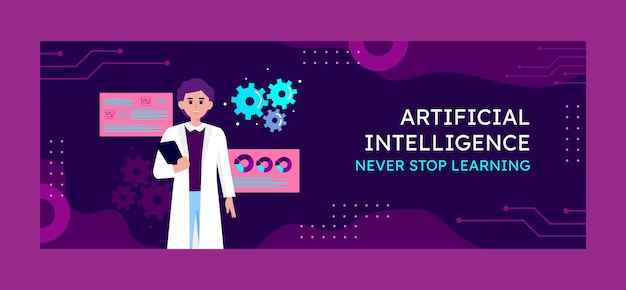Fascinating Facts about Artificial Intelligence

Artificial intelligence is revolutionizing the way we live and work.
AI can analyze vast amounts of data in seconds, something that would take humans days or even weeks.
AI has the potential to solve complex problems that have baffled humanity for centuries.
Machines with AI capabilities can learn from their experiences and improve their performance over time.
Despite its capabilities, AI is still limited in its ability to understand and interpret emotions and human behavior.
AI can be used for various applications, including healthcare, transportation, and finance.
AI systems are becoming increasingly adept at recognizing patterns and predicting future outcomes.
The integration of AI in education has the potential to revolutionize the way students learn and teachers teach.
AI can assist in diagnosing diseases and aid in the development of personalized treatment plans.
AI can optimize business processes by automating repetitive tasks and improving efficiency.
AI has the potential to create jobs and lead to economic growth.
AI-powered virtual assistants like Siri and Alexa are becoming increasingly prevalent in our everyday lives.
AI can assist in creating realistic visual effects in films and video games.
AI algorithms can analyze customer behavior and preferences to personalize marketing campaigns.
AI has the potential to reduce traffic congestion and improve transportation systems.
Fascinating Facts about Artificial Intelligence part 2
AI-powered chatbots can provide customer support and assistance 24/7.
AI can be used to detect potential cybersecurity threats and protect sensitive information.
AI can improve agricultural practices by optimizing crop cultivation and monitoring soil conditions.
AI has the potential to revolutionize the manufacturing industry through the use of robotic automation.
AI algorithms can analyze social media data to identify trends and sentiment analysis.
AI can assist in the development of new drugs and therapies through advanced data analysis.
AI-powered drones can be used in search and rescue missions to locate missing persons.
AI algorithms can analyze financial data and make predictions to optimize investment strategies.
AI can assist in the development of self-driving cars, leading to safer and more efficient transportation.
AI can help in the early detection and treatment of diseases through advanced medical imaging analysis.
AI-powered robots can perform complex surgical procedures with precision and minimal invasiveness.
AI algorithms can analyze customer feedback to improve product designs and enhance user experience.
AI can help in the conservation of natural resources by optimizing energy consumption.
AI can assist in monitoring and predicting natural disasters, enabling timely response and mitigation efforts.
AI-powered language translation systems can break down language barriers and facilitate global communication.
AI can assist in climate modeling and predicting the impact of human activities on the environment.
AI algorithms can analyze and interpret legal documents, assisting lawyers in their research and case preparations.
AI has the potential to enhance creativity by assisting artists in generating new ideas and designs.
AI can assist in the early detection of fraudulent activities in financial transactions.
AI algorithms can analyze user behavior to personalize online shopping recommendations.
AI can assist in space exploration by analyzing vast amounts of data collected from telescopes and satellites.
AI-powered virtual reality systems can provide immersive and realistic gaming experiences.
AI algorithms can analyze historical data to make accurate weather forecasts.
AI can assist in language learning by providing personalized feedback and adaptive learning platforms.
AI-powered robots can perform repetitive and dangerous tasks in hazardous environments.
AI algorithms can analyze social media posts to detect signs of mental health issues and provide support.
AI can assist in the development of smart cities, optimizing infrastructure and enhancing sustainability.
AI-powered personal assistants can schedule appointments, make reservations, and perform various tasks on behalf of their users.
AI algorithms can analyze traffic patterns to optimize public transportation routes and reduce commuting time.
AI has the potential to transform healthcare by enabling personalized medicine and improving patient outcomes.

